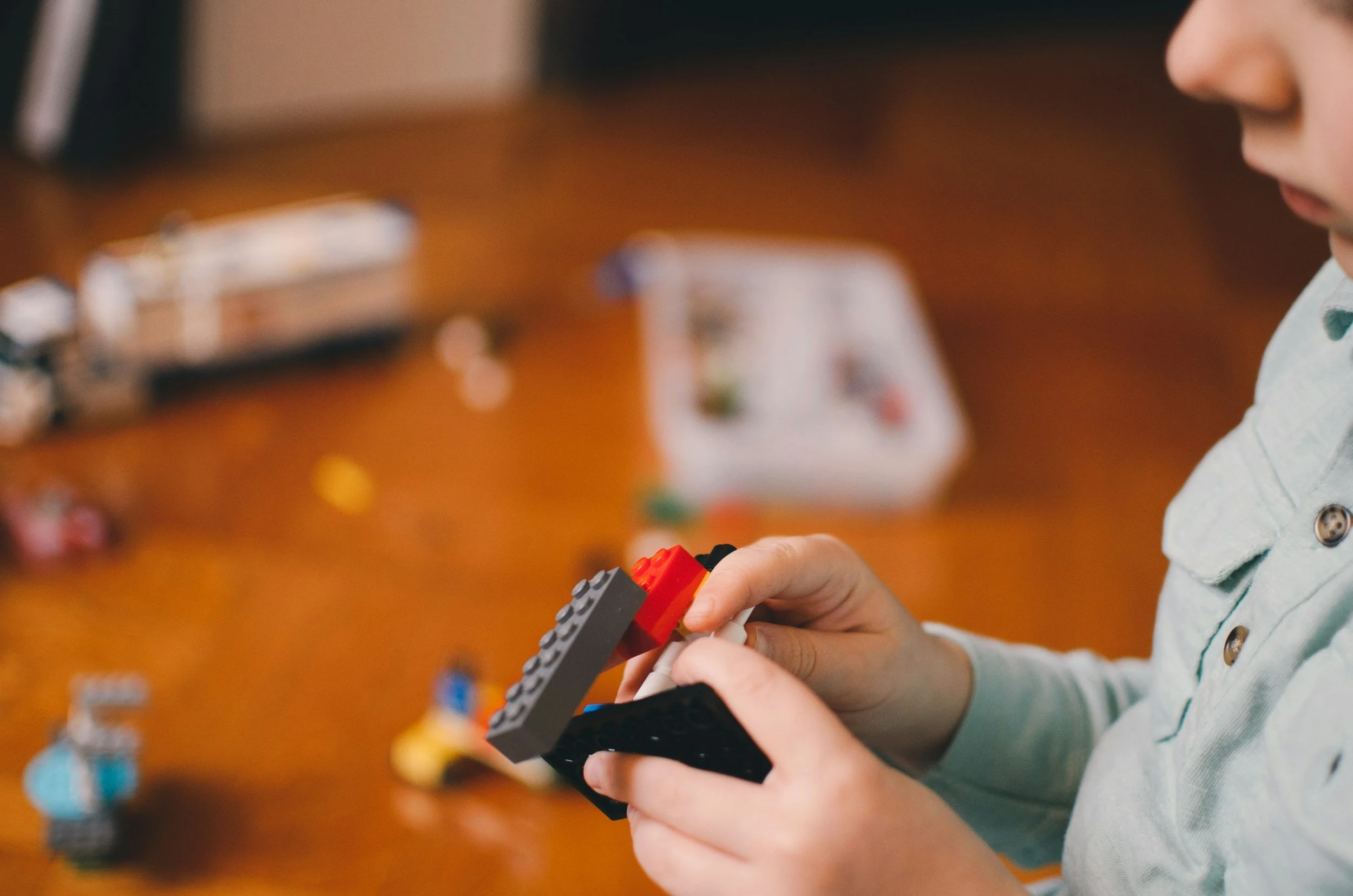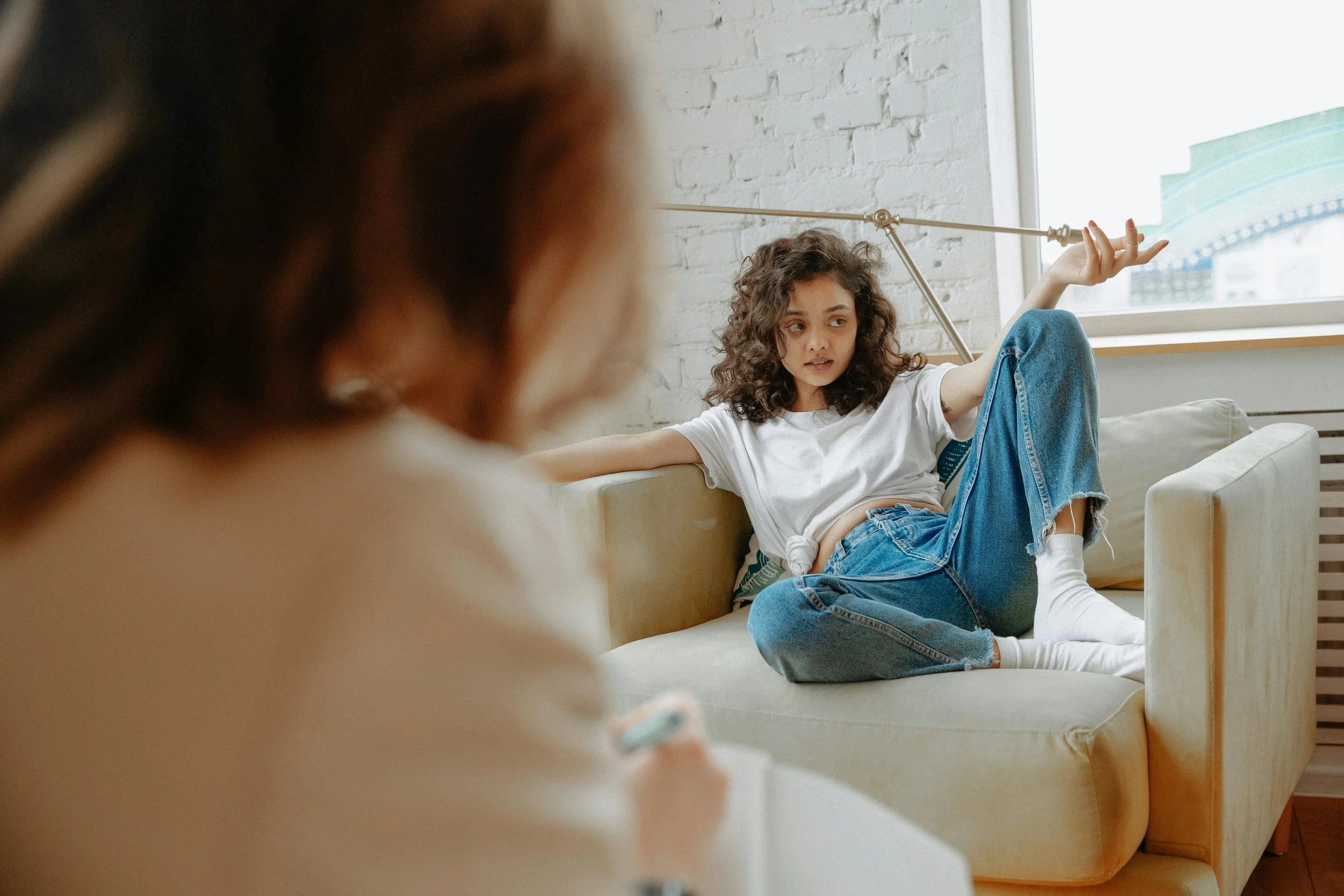-

Play Therapy
Play Therapy is developmentally responsive, evidence-based approach grounded in the belief that children have an innate capacity to express what they may not yet have the words to say. During play, children naturally communicate their emotions, fears, needs, and experiences. Toys become their words, and play becomes their language. Together we work through challenges, build emotional resilience, and develop healthy coping skills. Through this process, our play helps the child make sense of their inner world and fosters growth and healing.
-

Teen Therapy
Adolescence is a time of rapid change — emotionally, socially, and neurologically. Therapy for teenagers offers a safe, confidential space to explore their thoughts, feelings, and experiences without fear of judgment or expectation. Sessions are tailored to meet the teen where they are. Sometimes that looks like talking through challenges, and other times it may include creative expression, mindfulness, or skill-building strategies. The therapeutic relationship itself is key — built on trust, respect, and genuine attunement to the teen’s unique needs.
-

Family Therapy
When one member of a family is struggling, it often affects everyone. Family therapy provides a space for families to slow down, communicate more effectively, and better understand each other’s needs, patterns, and emotional experiences. These sessions focus on strengthening connection, improving communication, and creating healthier ways of relating. It’s especially helpful when children are experiencing emotional or behavioral challenges, as it supports parents and caregivers in responding with greater attunement, consistency, and empathy.
FAQs
-
Therapy sessions are tailored to meet your child’s developmental level and individual needs. For younger children, sessions often involve play-based activities, creative expression (like art or storytelling), and games that help them process emotions and learn coping skills. Older children and teens may engage more in conversation, problem-solving, and learning emotional regulation tools. The therapeutic relationship is built on trust, safety, and collaboration to help your child feel supported and understood.
-
Absolutely. Parent involvement is a key part of effective therapy. While many sessions are held one-on-one with your child, I regularly provide updates and invite you to participate in check-ins, goal-setting, or family sessions as appropriate. Collaboration ensures we’re all working together to support your child’s progress, both in and outside of the therapy room.
-
It’s completely normal for children to feel unsure or hesitant at first. Therapy is designed to be a safe, engaging, and non-threatening space. I use developmentally appropriate approaches to build trust and connection at your child’s pace. Even nonverbal forms of participation, like drawing, playing, or just being present, can be therapeutic.
-
Confidentiality is important to building trust with your child, especially for older children and teens. While I don’t share every detail of what your child says, I do share general themes, progress updates, and any safety concerns. If something significant arises that impacts your child’s well-being, I’ll involve you appropriately. We’ll work as a team, with your child’s best interest always in mind.
-
It helps to keep things simple and positive. You might say, “Therapy is a place where you can talk or play with someone who helps kids with big feelings or tough situations. It’s okay to feel nervous — lots of kids feel that way at first.” I’m also happy to help you find the right language based on your child’s age and situation.